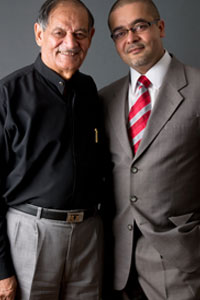Introduction to Taking a Blood Pressure

Taking a Blood Pressure
Blood is carried from the heart to all parts of your body in blood vessels called arteries. With each heart beat, blood pumps out into your arteries. Blood pressure is the force of the blood pushing against the walls of the arteries, when the heart beats and when the heart relaxes.This is similar to the pressure of water in a garden hose
Sometimes a person has problems with their blood pressure because of:
- Diseases of the blood vessels
- Heart disease
- Kidney disease
- Diabetes
- Pre-eclampsia (high blood pressure that develops during pregnancy)
Sometimes doctors cannot find the cause of high blood pressure, this is called essential hypertension.
When blood pressure problems develop, the person will often have to check their blood pressure regularly, depending on their doctor’s recommendations. If the person has difficulty holding and handling the equipment or is not able to remember to check the blood pressure, you might become the one who takes the blood pressure measurements.
The doctor will decide how often the person you care for requires blood pressure monitoring. In order for you to measure a person’s blood pressure correctly you will need to know the following:
- How often to check the blood pressure
- The correct measurement technique
- Factors that normally affect blood pressure
- The person’s normal blood pressure range
- What readings to report to the doctor
You will record each blood pressure measurement in a care diary. Also, be sure to write down what the person was doing just before having the blood pressure checked. Have the person take the diary to each doctor’s visit so that the doctor can see changes in blood pressure over a period of time. The doctor will use the information to adjust the person’s blood pressure medicines.
Here is Jim's Story:

My father lives with my wife and me in a multilevel home in the suburbs. He has been having problems with his heart for the past five years. However this year, the doctor diagnosed him with heart failure and high blood pressure. Each day he takes medicines to make his heart stronger and lower his blood pressure. His doctor has recommended regular blood pressure checks so that we can be sure he is responding to his medicines. I now give dad his medicines and check his blood pressure twice a day. We try to measure the BP at the same time each day, just before breakfast and then about an hour after his last dose of evening blood pressure medicine. I have found that if my father relaxes for at least five minutes, and if he does not drink coffee for at least 30 minutes before my BP check, his blood pressure remains in the right range. Thanks to my dad’s doctor, I know what readings are normal for my father and what is abnormal.